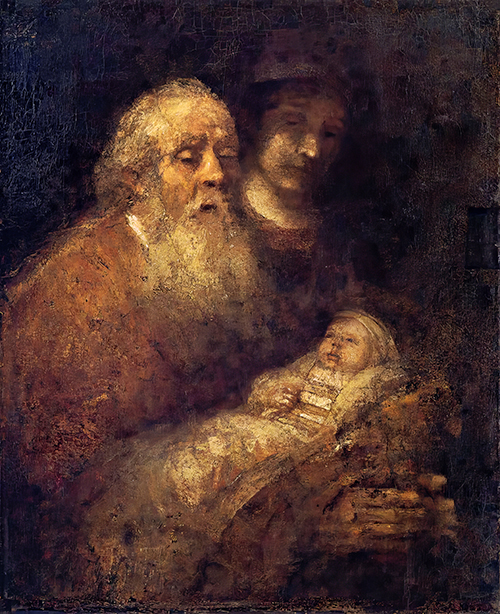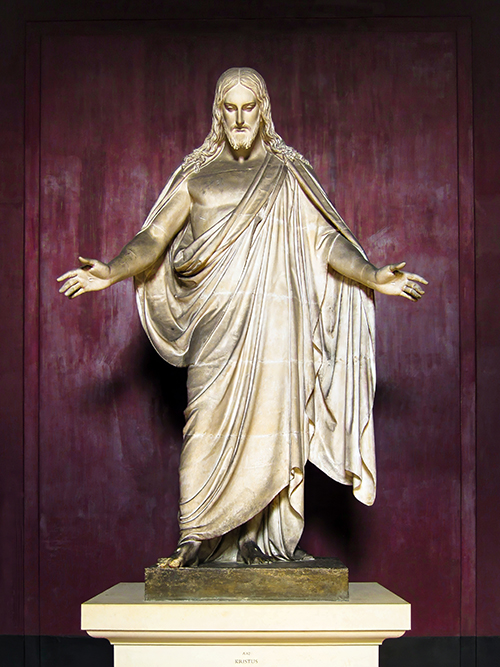Our liturgical year is rapidly drawing to a close.
A major question for Catholic parishes is often, “Where did we store the Advent wreath?”
This question is quickly followed by, “Are the statues for the Church Nativity crib where they ought to be?”
It is amazing how far a donkey, and indeed camels, can wander in a year!
It is not only the liturgical calendar: here in the city where I live, the annual Santa parade was held last weekend – enough said!

The painting hangs in the National Museum, Stockholm.
A habit I have used for many years is to spend time with a painting by the Dutch artist, Rembrandt Van Rijn, known as ‘Simeon with the Christ Child’.
The painting celebrates the Gospel story when the parents of Jesus bring the new-born to the temple with them for the purification rites proper to the Law of Moses (Lk. 2: 22 – 39).
The Rembrandt painting has the aged man Simeon taking hold of the child.
What I find reflective in the painting is that Simeon’s eyes are shut, and the child’s eyes are open.
I take the person of aged Simeon as a metaphor for the year ending, bringing closure, as it were, to all that has been.
I take the newborn, with eyes open, as a metaphor for the beginning of the year and for what is to come and am reminded of observing infant children who are alert to every sound, every voice that enters the room.
Without understanding, there is an alertness within them to the new and different.
There is, for me, a gentleness to the way aged Simeon holds the new-born child.
Again, when I use the painting as a metaphor, I am encouraged to welcome and hold the new year in a gentle manner, allowing the year to grow as a child grows, to allow the year to unfold as a child unfolds and develops.
All, without haste!



